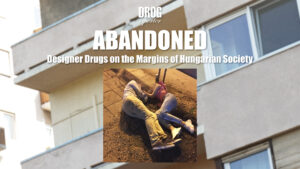Scotland has witnessed a dramatic increase in overdose deaths and HIV infections among injecting drug users. Policy-makers in Glasgow are reported to be considering a proposal to open the first supervised injection site, in response to the epidemics. We interviewed David Liddell, the director of the Scottish Drugs Forum, to learn more about the situation!
Drugreporter: How many people have died of drug overdose in Scotland?
Dave Liddell: 706 people died of an overdose in 2015 – an alarmingly high figure, which is the highest on record. It is linked to the scale of the drug problem in Scotland – 61,500 users, among a population of five million, and an aging population of problematic drug users.
The average age was 42 years, 69% male, with the majority of those who died coming from the poorest communities in Scotland. The drugs used were heroin, other opioids and benzodiazepines. Alcohol was also a drug implicated in over 100 of the deaths.
Drugreporter: What about the prevalence of infectious diseases among injecting drug users? Is that increasing too?
Dave Liddell: There have been reported increases in HIV among injectors recently, with a total of 75 cases in Glasgow. This outbreak is ongoing and very few are so far receiving HIV treatment.
Drugreporter: In your view, what factors are behind the negative trends?
Dave Liddell: The trend in rising drug deaths has several causes. Some older drug users have generally poor physical health and are therefore more likely to die as a result of overdose. But in a wider picture, we have a problem keeping people in treatment services, and we have a problem stopping people needing to use street drugs as well as their medication. There may be several reasons for this, but a significant issue is under-prescribing of OST – people are not getting large enough doses of their medication. Also, there is an issue about the transition of people from prisons and hospitals into the community-based treatment services.
Drugreporter: Are there any effective interventions to prevent overdose deaths?
Dave Liddell: We have a very well-developed naloxone programme, which has undoubtedly saved lives, but more needs to be done to reach the most vulnerable populations. We also need to improve access to, and retention in, ORT.
Drugreporter: Since 2008, drug policy in Scotland has shifted to a recovery-oriented approach. Do you think that has played a role in access to harm reduction?
Dave Liddell: We do not know. It may be that our focus has been taken away from harm reduction and responding to the needs of the most vulnerable. There is now a more balanced approach in place, to ensure that no-one is written off. We also have to be careful to ensure that underlying issues, such as trauma, are dealt with alongside the drug problem. We also certainly have deaths during ‘early recovery’ ie overdose deaths among people who have resolved to be abstinent, relapsed, and unfortunately overdosed and died.
Drugreporter: What do you recommend to policy makers, what steps should be taken?
Dave Liddell: We must improve the quality of treatment and build services that are more flexible and person-centred, so that therapeutic relationships can be put in place over the long term. As part of this, we need to improve access to services and then retain people in treatment. We should include introducing new models of care, including safer injecting facilities and heroin-assisted treatment.
An interview by Peter Sarosi






